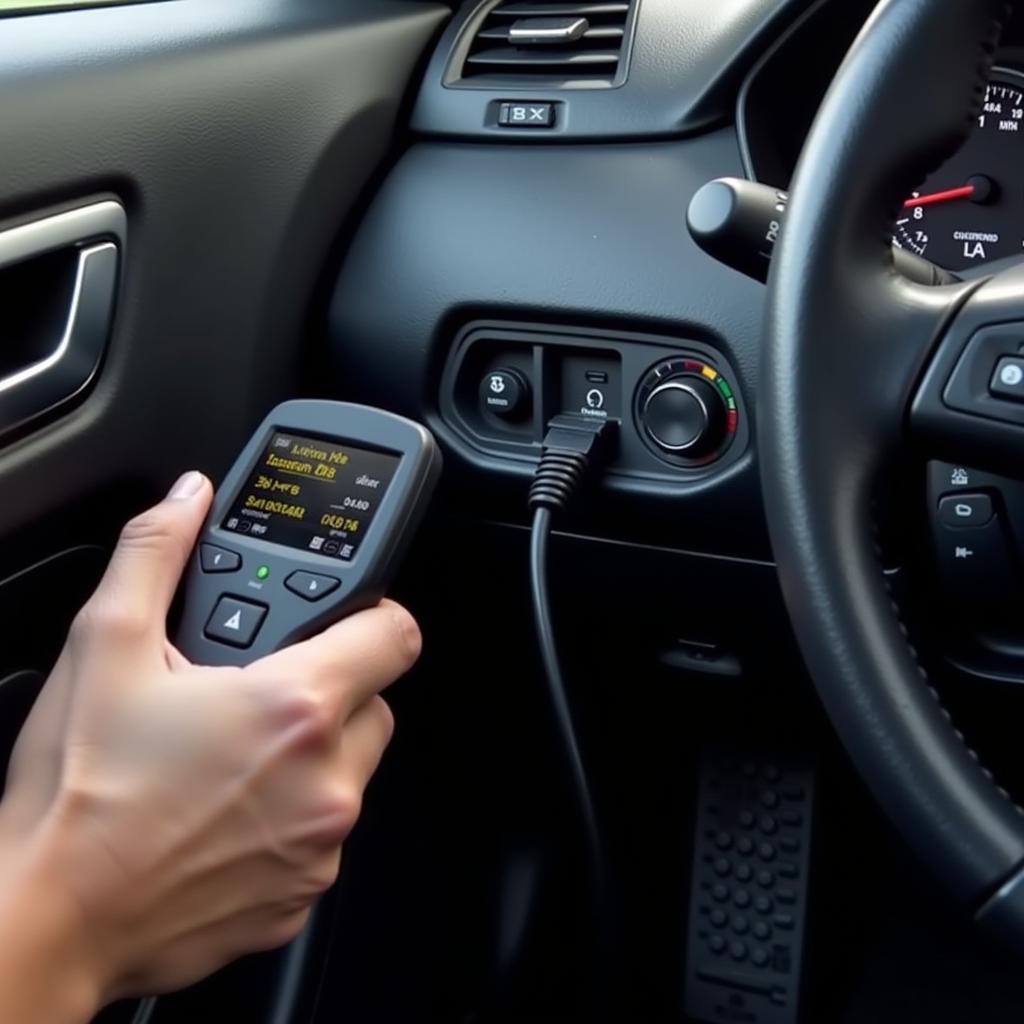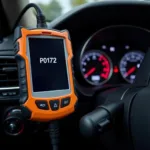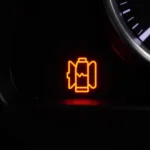Your car’s OBD2 port is a gateway to its inner workings, allowing you to diagnose issues using a handy OBD2 scanner. But what happens when your OBD2 scanner won’t connect to the ECU (Engine Control Unit)? This frustrating situation can leave you feeling powerless, but don’t worry! This comprehensive guide will walk you through the common causes and effective solutions to get you back on track.
Let’s delve into the reasons why your OBD2 scanner might be refusing to communicate with your car’s brain.
Common Causes of OBD2 Connection Issues
Several factors can lead to an OBD2 scanner failing to establish a connection with the ECU. Here are some of the most prevalent culprits:
- Faulty OBD2 Scanner: A malfunctioning scanner is a common cause of connection problems. This could be due to damaged cables, outdated software, or internal issues with the scanner itself.
- Blown Fuse: The OBD2 port often shares a fuse with other car systems. If a fuse blows, it can disrupt the power supply to the port, preventing the scanner from connecting.
- Loose or Damaged OBD2 Connector: Over time, the OBD2 connector (both on the car and the scanner) can become loose, bent, or damaged. This can disrupt the physical connection required for communication.
- ECU Communication Errors: Sometimes, the issue lies with the ECU itself. Software glitches, communication protocol errors, or even a failing ECU can prevent it from responding to the OBD2 scanner.
- Wiring Problems: Damaged, corroded, or loose wiring between the OBD2 port and the ECU can interrupt the flow of data, causing connection failures.
- Incompatible OBD2 Protocols: Vehicles manufactured before 1996 may not support the standard OBD2 protocols used by most scanners, leading to compatibility issues.
- Dead Car Battery: A dead or weak car battery can disrupt the power supply to the OBD2 port, preventing the scanner from establishing a stable connection with the ECU.
Troubleshooting Steps: How to Fix an OBD2 Connection Problem
Now that we’ve outlined the potential causes, let’s explore some troubleshooting steps to help you get your OBD2 scanner talking to your ECU again.
-
Check the Basics:
- Verify Scanner Compatibility: Ensure your OBD2 scanner is compatible with your car’s make, model, and year.
- Inspect the OBD2 Port: Examine both the car’s OBD2 port and the scanner’s connector for any visible damage, dirt, or debris. Clean the port and connector if necessary.
- Check the Fuse: Consult your car’s owner’s manual to locate the fuse associated with the OBD2 port and verify if it’s blown. Replace the fuse if needed.
-
Test with a Different OBD2 Scanner: If possible, try connecting a different OBD2 scanner to your car. If the second scanner connects successfully, it suggests the issue lies with your original scanner.
-
Inspect the Wiring: If you’re comfortable working with car electronics, visually inspect the wiring harness connected to the OBD2 port for any signs of damage, loose connections, or corrosion. Repair or replace any faulty wiring.
-
Check the Car Battery: Ensure your car battery is fully charged and in good condition. A weak or dead battery can cause communication problems between the scanner and the ECU.
-
Reset the ECU: Disconnecting the car battery for a few minutes can sometimes reset the ECU, potentially resolving communication glitches. Remember to consult your car’s owner’s manual for the proper procedure for resetting your specific ECU.
-
Seek Professional Help: If none of the above steps resolve the issue, it’s advisable to consult a qualified mechanic or automotive electrician. They can diagnose the problem using advanced diagnostic tools and expertise.
Frequently Asked Questions (FAQs)
Q1: Why is my OBD2 scanner only reading voltage?
This could indicate a communication problem between the scanner and the ECU. Try the troubleshooting steps mentioned above.
Q2: Can a bad ground cause OBD2 connection problems?
Yes, a poor ground connection can interfere with the OBD2 scanner’s ability to communicate with the ECU. Check for loose or corroded ground connections.
Q3: How do I know if my OBD2 port is bad?
If you’ve tried multiple scanners, checked the fuse, and inspected the wiring, and the port still doesn’t work, it might be faulty. A mechanic can test the port for you.
Need More Help?
If you’re still experiencing OBD2 connection issues or have any further questions, feel free to reach out to our expert team. We’re here to help! Contact us via WhatsApp at +1(641)206-8880 or email us at [email protected]. Our customer support team is available 24/7 to assist you.


